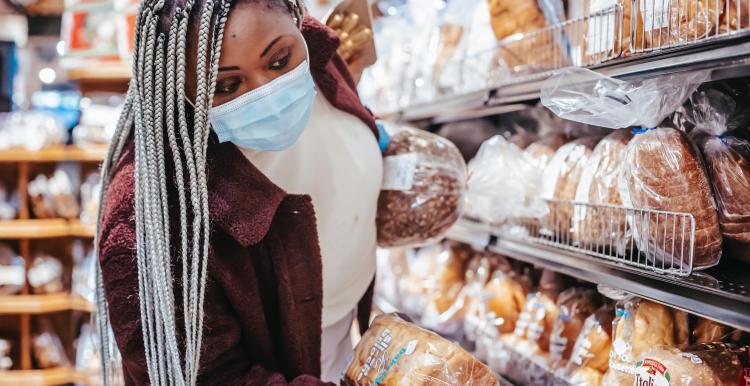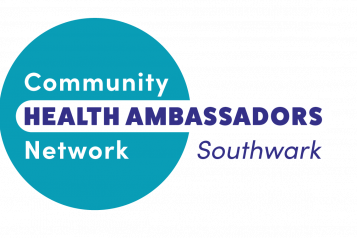Find out how to stay safe and help prevent the spread of coronavirus with safer behaviour and actions

It is still possible to catch and spread COVID-19, even if you are fully vaccinated. COVID-19 will be a feature of our lives for the foreseeable future, so we need to learn to live with it and manage the risk to ourselves and others.
The risk of catching or passing on COVID-19 can be higher in certain places and when doing certain activities. COVID-19 is spread by airborne transmission, close contact via droplets, and via surfaces. Airborne transmission is a very significant way that the virus circulates. It is possible to be infected by someone you don’t have close contact with, especially if you’re in a crowded and/or poorly ventilated space.
Close contact with an infected person is also a significant way COVID-19 is spread. When someone with COVID-19 breathes, speaks, coughs or sneezes, they release particles containing the virus that causes COVID-19. The particles can come into contact with the eyes, nose or mouth or can be breathed in by another person. The particles can also land on surfaces and be passed from person to person via touch.
In general, the risk of catching or passing on COVID-19 is higher in crowded spaces (where there are more people who might be infectious) and in enclosed indoor spaces (where there is limited fresh air).
Some activities, such as singing, dancing, and exercising can also increase the risk of transmission of COVID-19 as they generate more particles as people breathe.
In situations where there is a higher risk of catching or passing on COVID-19, you should be particularly careful to follow the guidance on keeping yourself and others safe as we return to normality. Every little action helps to keep us all safer.
Safer behaviour and actions
-
Getting fully vaccinated is the best way of protecting you and others against COVID-19:
-
Meeting outdoors is safer; let fresh air in if you meet indoors:
-
When a person infected with COVID-19 coughs, talks or breathes, they release droplets and aerosols which can be breathed in by another person. Meeting outdoors vastly reduces the risk of airborne transmission. If you’re indoors, you should let fresh air in to reduce the risk of catching or spreading COVID-19.
-
You can let in fresh air by uncovering vents and opening doors and windows. Opening your windows for just 10 minutes, or a small amount of time continuously where you can, makes a significant difference.
- This is particularly important before, during and after meeting people you do not live with indoors.
- Do not prop fire doors open. If you have an extractor fan at home, for example in your bathroom or kitchen, think about leaving it running for longer than usual with the door closed after someone has used the room.
-
-
Wear a face covering:
-
COVID-19 spreads through the air by droplets and aerosols that are exhaled from the nose and mouth of an infected person.
-
Wear a face covering in crowded and enclosed settings where you come into contact with people you do not normally meet.
-
-
Get tested and self-isolate if required:
-
If you have symptoms or test positive: Regardless of vaccination status, people who develop symptoms of Covid-19, even if they are mild, must self-isolate and book a PCR test. If you receive a positive test result, you must self-isolate for 10 days by law.
-
If you are told to self-isolate by NHS Test and Trace: In England, under 18s and those who are fully vaccinated, no longer need to self-isolate if they are identified as a contact. Instead they are advised to take a PCR test and only need to self-isolate if they receive a positive test result. Where contacts are over 18 and not fully vaccinated, they are legally required to self-isolate.
-
Employees that have been told by the NHS to self-isolate but can't work from home may be eligible for a £500 payment from Southwark Council.
-
-
-
Take tests if you do not have symptoms to help manage your risk:
-
Around 1 in 3 people with COVID-19 do not have any symptoms. This means they could be spreading the virus without knowing it.
-
Testing regularly increases the chances of detecting COVID-19 when you are infectious but are not displaying symptoms, helping to make sure you do not spread COVID-19 by staying at home and self-isolating immediately.
-
For this type of testing, you should take a 'rapid lateral flow test'. You can pick up tests online or from pharmacies for free.
- Order packs to be sent to your home (free)
-
-
Stay at home if you’re feeling unwell:
-
If you develop COVID-19 symptoms, self-isolate immediately and get a PCR test, even if your symptoms are mild. You should self-isolate at home while you book the test and wait for the results. You must self-isolate if you test positive.
-
If you feel unwell but do not have COVID-19 symptoms, or your COVID-19 test is negative, you may still have an illness which could be passed on to other people. Many common illnesses, like the flu or the common cold, are spread from one person to another. Staying at home until you feel better reduces the risk that you will pass on an illness to your friends, colleagues, and others in your community. This will help reduce the burden on our health services.
-
-
Wash your hands regularly and cover coughs and sneezes:
-
It is particularly important to wash your hands after coughing, sneezing and blowing your nose; before you eat or handle food; after coming into contact with surfaces touched by many others, such as handles, handrails and light switches; after coming into contact with shared areas such as kitchens and bathrooms; and when you return home.
-
Coughing and sneezing increases the number of droplets and aerosols released by a person, the distance they travel and the time they stay in the air. Covering coughs and sneezes will help reduce the spread of particles carrying COVID-19 and other viruses, including those that cause coughs and colds.
-
-
Use the NHS COVID-19 app:
-
Everyone is encouraged to use the NHS COVID-19 app, which helps stop the spread of the virus by informing you that you have been in close contact with someone who has since tested positive for COVID-19, even if you do not know each other.
-
The app now advises potential contacts who are vaccinated to take a PCR test rather than to isolate.
-
-
Limit close contact with other people:
-
When someone with COVID-19 breathes, speaks, coughs or sneezes, they release particles containing the virus that causes COVID-19. These particles can be breathed in by another person. You may choose to limit the close contact you have with people you do not usually live with. You may also choose to take a lateral flow test before being in close contact and also encourage those people you are meeting with to do so, which will help to manage periods of risk. This includes close contact in a higher risk environment, or when spending prolonged periods of time with a vulnerable individual.
-
